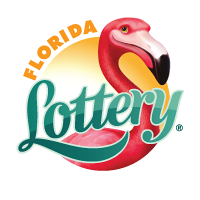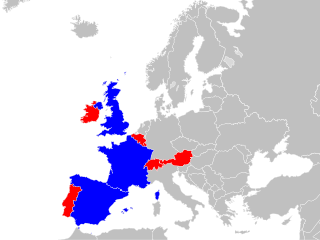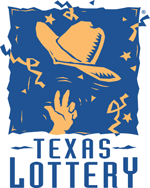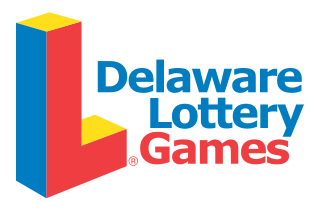
A lottery is a form of gambling that involves the drawing of numbers at random for a prize. Some governments outlaw lotteries, while others endorse it to the extent of organizing a national or state lottery. It is common to find some degree of regulation of lottery by governments. The most common regulation is prohibition of sale to minors, and vendors must be licensed to sell lottery tickets. Although lotteries were common in the United States and some other countries during the 19th century, by the beginning of the 20th century, most forms of gambling, including lotteries and sweepstakes, were illegal in the U.S. and most of Europe as well as many other countries. This remained so until well after World War II. In the 1960s, casinos and lotteries began to re-appear throughout the world as a means for governments to raise revenue without raising taxes.
This is a collection of the largest prizes/jackpots awarded in various lotteries.

A lottery scam is a type of advance-fee fraud which begins with an unexpected email notification, phone call, or mailing explaining that "You have won!" a large sum of money in a lottery. The recipient of the message—the target of the scam—is usually told to keep the notice secret, "due to a mix-up in some of the names and numbers," and to contact a "claims agent." After contacting the agent, the target of the scam will be asked to pay "processing fees" or "transfer charges" so that the winnings can be distributed, but will never receive any lottery payment. Many email lottery scams use the names of legitimate lottery organizations or other legitimate corporations/companies, but this does not mean the legitimate organizations are in any way involved with the scams.

The Florida Lottery is the government-operated lottery of the U.S. state of Florida. As of 2022, the lottery offers eleven terminal-generated games: Cash4Life, Mega Millions, Powerball, Florida Lotto, Pick 2, Pick 3, Pick 4, Pick 5, Fantasy 5, Cash Pop, and Jackpot Triple Play.

The Pennsylvania Lottery is operated by the Commonwealth of Pennsylvania. The Lottery was created by the Pennsylvania General Assembly on August 26, 1971; two months later, Henry Kaplan was appointed as its first executive director. The Pennsylvania Lottery sold its first tickets on March 7, 1972 and drew its first numbers on March 15, 1972.

EuroMillions is a transnational lottery that requires seven correct numbers to win the jackpot, which consists of 5 main numbers and 2 Lucky Star Numbers. It was launched on 7 February 2004 by France's Française des Jeux, Spain's Loterías y Apuestas del Estado and the United Kingdom's Camelot. The first draw was held on 13 February 2004 in Paris. Initially, only the UK, France and Spain participated, with the Austrian, Belgian, Irish, Luxembourgish, Portuguese and Swiss lotteries joining for the 8 October 2004 draw.
The Mega-Sena is the largest lottery in Brazil, organised by the Caixa Econômica Federal bank since March 1996.
Lotteries in Australia include various lottery related products licensed by the Lott, The Lottery Office and Lotterywest Australian lottery companies. Lotteries operators are licensed at a state or territory level, and include both state government-owned, not-for-profit and private sector companies. Most major Lotteries have now moved into the online marketplace.
4-Digits is a lottery in Germany, Singapore, and Malaysia. Individuals play by choosing any number from 0000 to 9999. Then, twenty-three winning numbers are drawn each time. If one of the numbers matches the one that the player has bought, a prize is won. A draw is conducted to select these winning numbers. 4-Digits is a fixed-odds game.
The Spanish Christmas Lottery is a special draw of the Lotería Nacional, the weekly national lottery run by Spain's state-owned Loterías y Apuestas del Estado. The special Christmas draw takes place every December 22 and it is the biggest and most popular draw of the year.

Toto is a legalised form of lottery sold in Singapore, known by different names elsewhere. It is held by Singapore Pools, the only legal lottery operator in Singapore. As of April 2015, it was the second most popular type of gambling activity after 4-Digits. Toto can be purchased from any of the Singapore Pools outlets across Singapore. Draws are conducted every Monday and Thursday at 6:30 pm. In case of the cascade draw, the draw time will change to 9.30 pm. The "live" Toto draw can be viewed at the Singapore Pools Main Branch at 210 Middle Road. The profits from Toto go to the Singapore Totaliser Board which uses the money for charity and other worthy causes.

The Connecticut Lottery Corporation, also called the CT Lottery, is the official lottery in Connecticut. It was created in 1971 by then-Gov. Thomas Meskill, who signed Public Act No. 865. The first tickets were sold on February 15, 1972. The Connecticut Lottery offers several in-house drawing games; Connecticut also participates in Mega Millions and Powerball; each are played in 44 states, the District of Columbia, and the U.S. Virgin Islands.

The Texas Lottery is the government-operated lottery available throughout Texas. It is operated by the Texas Lottery Commission, headquartered in downtown Austin, Texas.

The New Jersey Lottery is run by the U.S. state of New Jersey. Its In-house draw games are: Pick-3, Pick-4, Jersey Cash 5, Pick-6, Quick Draw, and Cash Pop. Its multi-jurisdictional draw games are: Cash4Life, Mega Millions, and Powerball. The Lottery also sells Fast Play and scratch-off tickets. The New Jersey Lottery is headquartered at One Lawrence Park Complex in Lawrence Township, Mercer County.

The Delaware Lottery is run by the government of Delaware. Its creation was authorized by the state legislature on May 31, 1974. Its "traditional" games include Play 3, Play 4, Multi-Win Lotto, Lucky For Life, Lotto America, Mega Millions, and Powerball. Delaware also offers Keno, sports betting, and video lottery.

The Hoosier Lottery is the official state lottery of Indiana, and is the only US lottery that uses the state's nickname as its official name. It is a member of the Multi-State Lottery Association (MUSL). The Hoosier Lottery sells scratch-off tickets; its draw games include Mega Millions, Hoosier Lotto, Powerball, Cash 5, and Poker Lotto.
A lottery is a form of gambling which involves selling numbered tickets and giving prizes to the holders of numbers drawn at random. Lotteries are outlawed by some governments, while others endorse it to the extent of organizing their own national (state) lottery. It is common to find some degree of regulation by governments, like allowing or prohibiting online sales of tickets.

Sociedad Estatal Loterías y Apuestas del Estado is a Spanish state-owned company. Assigned to the Spanish Ministry of Finance, it is responsible for the management, operation and marketing of all types of lotteries and gambling nationwide or whenever they exceed the scope of a region.
BonoLoto is a lottery in Spain, regulated by the Sociedad Estatal Loterías y Apuestas del Estado.
Lotofácil is a lottery game held in Brazil by the Caixa Econômica Federal (CEF). Its first contest was held on September 29, 2003, after a slow approval process in the National Congress. Shortly after its launch, it became the second lottery to collect the most funds for CEF after Mega-Sena. In this modality, the player must mark between fifteen and twenty numbers on the card, among the 25 available, and wins a cash prize when matching between eleven and fifteen winning numbers. The "zero-ending" contests and the special September contest, known as Lotofácil da Independência, have a prize composed of the accumulation of common drawings. The drawings are held daily, except on Sundays, since August 2020, and are broadcast live. Part of the profit collected is passed on to government social programs.